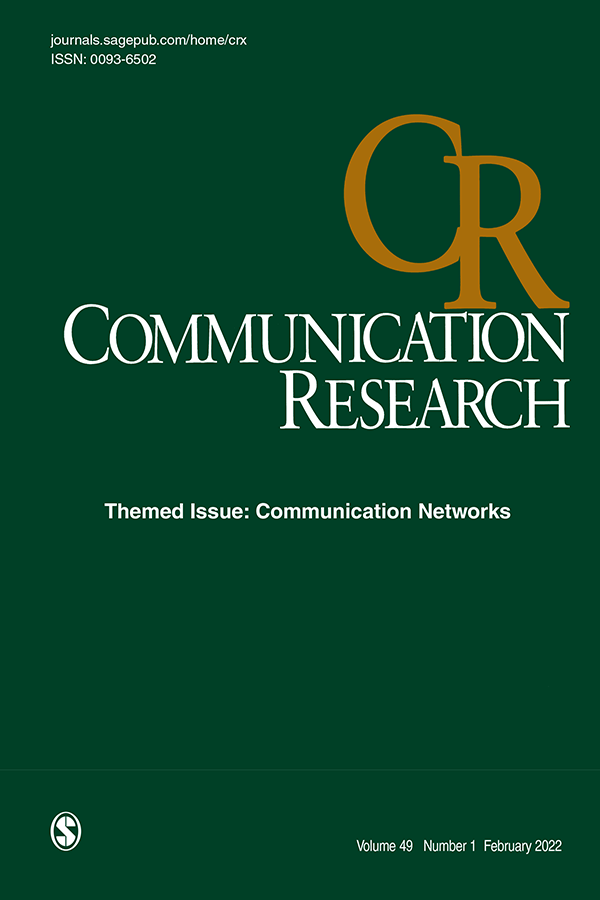娱乐有助于适应性应对:享乐娱乐与享乐娱乐、逃避主义和意义创造之间相互作用的纵向调查
IF 3.2
1区 文学
Q1 COMMUNICATION
引用次数: 0
摘要
传统上,研究的重点是调查娱乐媒体使用的短期影响。然而,本文从健康发生学的角度探讨了娱乐使用作为一种适应性应对技能对意义创造的潜在长期影响。我们提出了三种理论途径来解释享乐和快乐娱乐的潜在影响,以及逃避现实的媒体使用对意义创造的影响——通过逆境的替代体验、体验积极影响和分心。在两项不同时间间隔(6个月,每周和每天观察)的预登记纵向研究中,享乐和快乐娱乐的使用都与每天和每周的意义产生呈正相关,但超过6个月则没有。在所有时间间隔中,逃避现实的媒体使用负向预测意义制造。此外,替代体验和积极情绪介导了这些影响,而不是分心。我们的研究结果揭示了娱乐使用的时间动态,并强调了其在促进意义创造中的作用。本文章由计算机程序翻译,如有差异,请以英文原文为准。
Entertainment Contributes to Adaptive Coping: A Longitudinal Investigation of the Interplay Between Hedonic and Eudaimonic Entertainment, Escapism, and Meaning Making
Traditionally, research has focused on investigating short-term effects of entertainment media use. This paper, however, takes a salutogenetic perspective in exploring the potential long-term effects of entertainment use on meaning making as an adaptive coping skill. We propose three theoretical pathways explaining potential effects of hedonic and eudaimonic entertainment, as well as escapist media use on meaning making—through vicarious experiences of adversity, experiencing positive affect, and distraction. In two preregistered longitudinal studies with varying time intervals (6 months, weekly, and daily observations), both hedonic and eudaimonic entertainment use showed positive within-person relationships with meaning making daily and weekly, but not over 6 months. Escapist media use negatively predicted meaning making across all time intervals. Additionally, vicarious experience and positive affect, but not distraction, mediated these effects. Our findings shed light on temporal dynamics of entertainment use and emphasize its role in fostering meaning making.
求助全文
通过发布文献求助,成功后即可免费获取论文全文。
去求助
来源期刊

Communication Research
COMMUNICATION-
CiteScore
17.10
自引率
0.00%
发文量
20
期刊介绍:
Empirical research in communication began in the 20th century, and there are more researchers pursuing answers to communication questions today than at any other time. The editorial goal of Communication Research is to offer a special opportunity for reflection and change in the new millennium. To qualify for publication, research should, first, be explicitly tied to some form of communication; second, be theoretically driven with results that inform theory; third, use the most rigorous empirical methods; and fourth, be directly linked to the most important problems and issues facing humankind. Critieria do not privilege any particular context; indeed, we believe that the key problems facing humankind occur in close relationships, groups, organiations, and cultures.
 求助内容:
求助内容: 应助结果提醒方式:
应助结果提醒方式:


